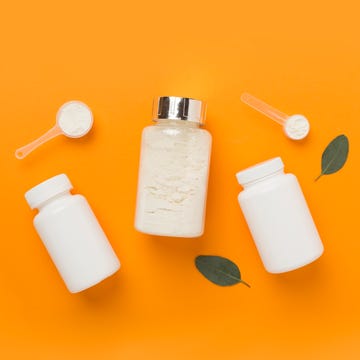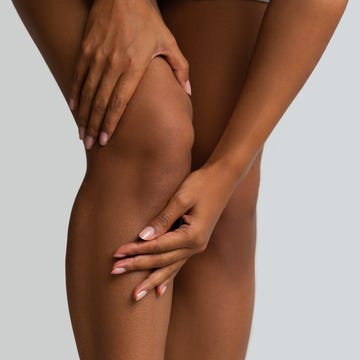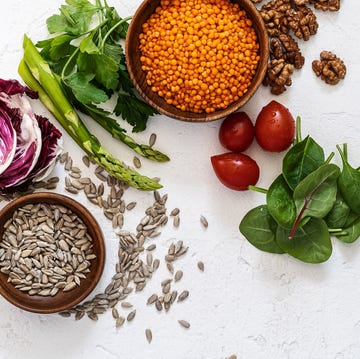Just getting your head around gut health? Or sick to your stomach of hearing about it? Either way, we have news. Forget probiotics – the new buzzword in microbiome science is postbiotics.
Post-what? ‘Postbiotics are beneficial compounds produced when the good bacteria in our gut break down the fibres and nutrients that feed them,’ explains Rhian Stephenson, nutritional therapist and founder of the nutrition and supplement company ARTAH. Still lost? ‘Essentially, prebiotics feed probiotics, which then create postbiotics as byproducts.’
So are probiotics just microbiome middle-men – the halfway point in the process of good gut health, rather than the end goal itself? ‘In part, yes,’ says Simon Gaisford, professor of pharmaceutics at University College London. ‘If we were to ask the question “How do probiotic bacteria have an effect on us?” then there are several potential mechanisms. They could eat (metabolise) harmful or toxic compounds in our guts, they could out-compete or kill harmful bacteria and they could produce useful waste products. The latter are postbiotics – compounds produced as waste by bacteria living in our gut.’
What to read next
Postbiotics, he explains, can include simple compounds, like vitamins or short-chain fatty acids (SCFAs), but also extracellular polysaccharides (EPS) – in essence, things that help bacteria stick to our gut wall. The term also covers things that might be released when bacteria die – so the contents of the bacteria themselves (called lysates) and even fragments of bacterial cell wall.
None of this sounds exactly sexy, so why the hype? ‘Postbiotics are gaining attention because emerging research links them to reduced risk of chronic diseases, improved gut health, immunity and anti-inflammatory effects, potentially making them even more influential than probiotics or prebiotics alone,’ explains Rhian.
Take lactic acid for example, says Simon: ‘This seems to be key in maintaining good gut health (it helps to kill bad bacteria and is also a food source for good bacteria).’ Butyrate - a type of SCFA - is also known to be very beneficial to human health.
So are postbiotics better than probiotics and can we bypass the latter, justing eat these postbiotic compounds instead? Well, you wouldn’t want to take lactic acid and butyrate off a spoon, says Simon. ‘Butyrate smells awful and many attempts have been made to turn it into a supplement but without success. I think it’s better to think of “cultivating” a good mix of bacteria in our guts through eating a healthy diet, taking a properly formulated probiotic supplement and trying to reduce your stress levels. Then you’ll get the benefits of postbiotics naturally.’
Rhian agrees, broadly: ‘Eating prebiotic-rich foods (such as onions, garlic, leeks, asparagus, leafy greens etc) feeds your gut bacteria, which then produce postbiotics naturally during digestion, making prebiotic intake key for optimal postbiotic production. It’s also important to try to avoid foods and habits that could potentially disrupt the microbiome. Excess sugar and alcohol consumption, ultra-processed foods, chemical sweeteners and deep-fried foods, for example, have all been shown to disrupt the microbiome.’
There are, however, some potential shortcuts towards postbiotic plenitude, she suggests. ‘Raw fermented foods, such as kefir, sauerkraut and kimchi, or liquids, such as apple cider vinegar, will likely have postbiotic compounds within them as their fermentation releases metabolites. And while fibre-rich foods don’t have postbiotics in them, eating fibre will boost your postbiotic production.’













